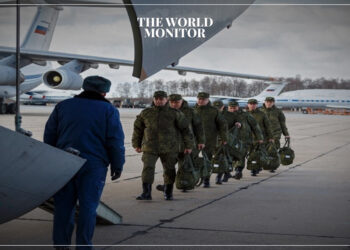In an interview with Al-Sharq on Sunday, former Sudanese Prime Minister Abdullah Hamdok emphasized that there is no military solution to the crisis in Sudan, advocating for a resolution based on negotiations and consultations among Sudanese. He revealed ongoing communications with Army Chief and Sovereign Council President Abdel Fattah al-Burhan, expressing hope for an imminent meeting to advance efforts in resolving the Sudanese crisis.
Hamdok, leading a delegation from the “Progress” coordination group at the African Union Summit in Addis Ababa, Ethiopia, highlighted his meetings with various African and Western officials, where he presented a comprehensive vision for resolving the Sudanese crisis.
He firmly believes that the solution should be negotiated and initiated through broad consultations among Sudanese, within what he called the “founding meeting” involving democratic forces aiming to halt the war and restore democratic civilian transition.
Hamdok anticipates the foundational conference for the civil democratic forces’ coordination “Progress” to be held next month, after several postponements.
Sudan has been ravaged by devastating conflict between the Rapid Support Forces and the Sudanese army since mid-April, leading to catastrophic political and economic repercussions, widespread infrastructure damage, deteriorating healthcare systems, and a dire food security threat for millions.
The conflict has triggered a humanitarian disaster, with approximately 25 million people, over half the population, requiring aid, including nearly 18 million facing severe food insecurity, according to UN data.
Hamdok reported receptive responses from leaders at the African Union Summit, highlighting Sudan’s “catastrophic crisis in everything” and warning of a looming famine across the country. He advocated for the urgent delivery of humanitarian aid to all Sudanese from all entry points.
The World Health Organization last week warned of a “catastrophic” famine risk in Sudan’s conflict zones between April and July, a lean period between harvest seasons, exacerbating the struggle for millions to feed themselves.
In this lean period, preceding the harvest and when grains from the previous crop run out, food prices significantly soar as stocks dwindle, putting malnourished children at an increased risk of death from diseases like diarrhea, pneumonia, and measles, especially in contexts lacking essential health services.
France is set to host an international conference in mid-April to highlight this “very serious crisis,” aiming to secure the necessary funding for Sudan. The UN and its partners issued a call on February 7 to raise $4.1 billion to meet the most urgent humanitarian needs, including for over 1.6 million people forced to flee to neighboring countries.
Hamdok also disclosed communications with Sudanese Army Chief Abdel Fattah al-Burhan and Rapid Support Forces Commander Mohamed Hamdan Dagalo, expressing hope for a consultative meeting to address the prolonged crisis. He confirmed ongoing phone conversations with Burhan, anticipating a direct meeting.
Regarding the postponement of the “Progress” coordination’s foundational conference, Hamdok stressed the aim for a successful conference with broad participation, amidst significant challenges. He reaffirmed the commitment to holding the conference next month, ensuring it meets Sudanese aspirations through thorough preparation.






